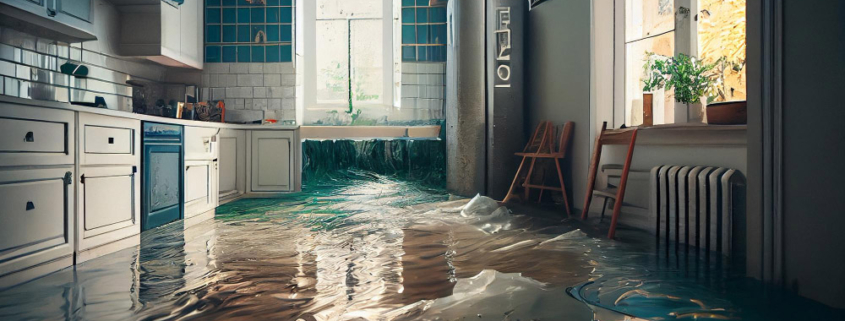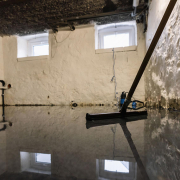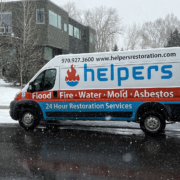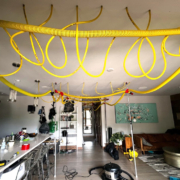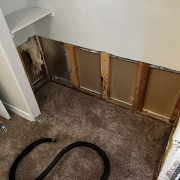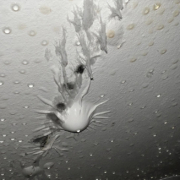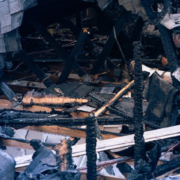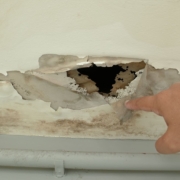Complete Guide to Eliminating Odors After Water Damage
Water damage in your home can cause more than just visible structural issues. One of the most persistent problems it can bring is unpleasant odors, often resulting from mold, mildew, and bacteria. These odors are more than just a nuisance; they can negatively impact indoor air quality and pose health risks. Eliminating these odors quickly and effectively is essential to restoring your home to its pre-damage condition. This guide provides a comprehensive approach to removing odors caused by water damage and ensuring your home is fresh and clean again.
Understanding the Source of Odors
To successfully eliminate odors, it’s crucial to first identify their source. The primary causes of odors after water damage are:
- Mold and Mildew: These fungi thrive in damp environments and can begin to grow within 24 to 48 hours after water exposure. Mold and mildew are notorious for creating strong, musty odors that linger long after the water is removed.
- Bacteria: Standing water and wet surfaces create ideal conditions for bacteria to grow, contributing to foul odors.
- Contaminants: Depending on the water source, it may contain chemicals, sewage, or other contaminants that can leave distinct and often overwhelming smells.
Understanding these factors will help you target the right solutions when eliminating odors.
Step-by-Step Guide to Removing Odors
1. Immediate Action to Prevent Mold Growth
The key to minimizing odors is to act fast after water damage occurs, preventing mold and mildew from taking root.
- Remove Standing Water: Use pumps or wet vacuums to eliminate standing water as soon as possible. The longer the water sits, the higher the chance of mold growth. For comprehensive guidance, refer to professional water damage services.
- Dry the Area Thoroughly: After removing the water, use dehumidifiers and fans to dry out the affected areas completely. Ensure good air circulation by opening windows and using air movers to accelerate the drying process. Ventilation is critical to reducing moisture levels that fuel mold and mildew growth.
2. Clean and Disinfect Thoroughly
Once the area is dry, thorough cleaning is essential to remove odors and prevent further issues.
- Wash Fabrics: If fabrics like curtains, upholstery, or carpets have been soaked, wash them in hot water or have them professionally cleaned. This will help remove any lingering odors and reduce the chances of mold growth.
- Clean Surfaces: Clean all affected surfaces using a mixture of water and mild detergent. For non-porous surfaces, consider adding a disinfectant to the mix to kill any bacteria and mold spores that might be present.
3. Remove Mold and Mildew Odors
To specifically tackle the odors caused by mold and mildew, follow these effective methods:
- Use White Vinegar: White vinegar is a natural deodorizer and mold killer. Spray vinegar directly on moldy surfaces, let it sit for about an hour, and then wipe it clean. This can help eliminate more than 80% of mold species.
- Apply Baking Soda: Baking soda is another powerful, natural deodorizer. Sprinkle it over damp areas to absorb moisture and odors. Leave it in place for several hours before vacuuming it up.
- HEPA Vacuuming: After cleaning and drying the area, use a vacuum equipped with a HEPA filter to remove mold spores from floors, walls, and other surfaces. This ensures that any lingering mold particles are fully eliminated.
4. Deodorize the Space
If odors persist after cleaning, further deodorization may be necessary.
- Activated Charcoal: Activated charcoal filters are highly effective at absorbing odors. Place these filters throughout the affected areas to neutralize any remaining smells.
- Ozone Generators: For particularly strong odors, professional ozone treatments may be required. Ozone generators work by neutralizing airborne odors, but they should only be operated by professionals due to the risks associated with high ozone levels.
5. Prevent Future Odors
Once you’ve removed the current odors, it’s important to take preventive measures to avoid future issues.
- Regular Inspections: Conduct routine inspections of your home for leaks or moisture buildup, particularly in areas prone to dampness like basements, attics, and bathrooms. Promptly address any leaks you find to prevent water damage from recurring.
- Improve Ventilation: Good ventilation is key to preventing moisture buildup. Install exhaust fans in bathrooms and kitchens, and ensure that your HVAC system is running efficiently to circulate air and reduce humidity levels.
- Use Mold Inhibitors: When repainting walls or ceilings, consider adding mold inhibitors to the paint. These products can help prevent mold from growing on painted surfaces in high-moisture areas.
Conclusion
Eliminating odors after water damage is essential for restoring the comfort and safety of your home. By taking immediate action, thoroughly cleaning affected areas, and using effective odor removal techniques, you can rid your home of unpleasant smells caused by mold, mildew, and bacteria. Incorporating preventive measures, like regular inspections and improved ventilation, will also help safeguard your home against future odor problems.
If you’re dealing with persistent odors or extensive water damage, don’t hesitate to contact professional restoration services for assistance. For more information and expert solutions, explore the services offered by trusted restoration companies.
This complete guide equips homeowners with the knowledge and tools to effectively eliminate odors after water damage, ensuring a fresh and healthy living environment.

